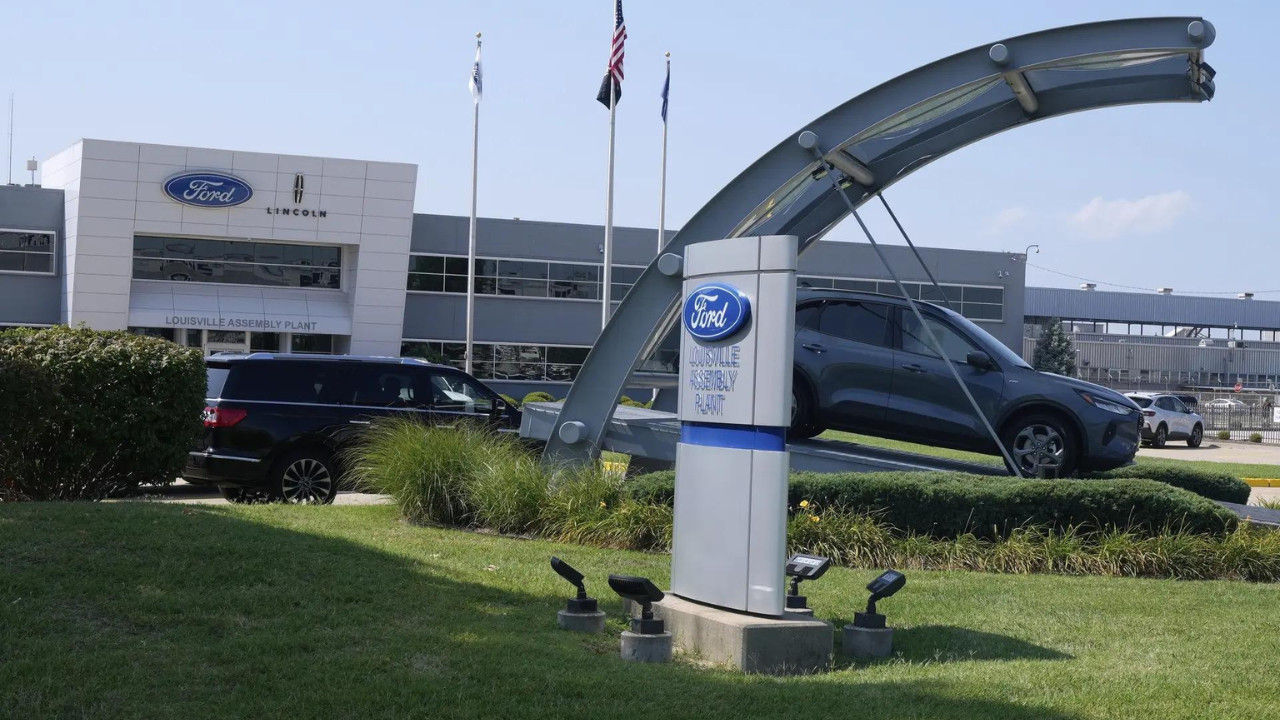Ford is investing nearly $2 billion to transform its Louisville plant into an EV production hub, signaling a major shift after decades of petrol-powered vehicles. The revamped facility will produce a midsize electric pickup truck by 2027, targeting affordability and profitability with a new assembly layout.
Blue Oval Bets Big: Ford’s $2 Billion Kentucky EV Hub Aims for Electric Domination
The air crackles with anticipation in Louisville, Kentucky. Not from the thunder of a summer storm, but from the electric potential of Ford’s massive $2 billion investment in a sprawling EV hub. This isn’t just another factory; it’s a bold statement, a declaration of intent as Ford accelerates its journey towards a sustainable and, crucially, profitable electric future.
For those who still associate Ford with roaring V8s and gas-guzzling trucks, this news might feel like a jolt. But the writing is on the wall – or rather, emblazoned across the charging stations of the future. The auto industry is transforming, and Ford is determined to lead the charge. This isn’t about reluctantly dipping a toe in the electric waters; it’s a full-fledged cannonball into the deep end.
But why Louisville? And why now? The answer lies in a potent combination of strategic location, supportive local government, and a workforce eager to embrace the future of automotive manufacturing. Kentucky offers Ford a logistical advantage, placing the new Ford EV hub in a prime position to serve a vast swathe of the American market. The state’s commitment to fostering a business-friendly environment certainly sweetened the deal.
The investment is earmarked for two key areas. First, upgrading Ford’s existing Kentucky Truck Plant to produce next-generation electric trucks. Picture it: the same plant that currently churns out hulking gasoline-powered giants will soon be humming with the near-silent assembly of their electric counterparts. This signifies more than just a model change; it signifies a fundamental shift in manufacturing philosophy.

Second, a brand new battery packaging facility is being built to support the electric vehicle production. Batteries, the heart of any EV, are complex and crucial. Bringing battery packaging in-house allows Ford to exert greater control over its supply chain, reduce costs, and ultimately deliver more affordable electric vehicles to consumers. This vertical integration is a hallmark of companies serious about long-term success in the EV market. Think about how crucial in-house battery production was for Tesla in solidifying their market dominance. Ford is making a similar, and extremely valuable, move.
This multi-billion dollar venture goes far beyond just bricks and mortar. It’s an investment in the future of American jobs. The project is expected to create thousands of new positions, injecting fresh economic vitality into the Louisville region. These aren’t just assembly line jobs; they’re skilled positions requiring expertise in advanced manufacturing techniques, robotics, and software engineering. Ford is actively working to train and upskill its workforce, ensuring they’re ready to meet the challenges of the electric era. It’s a welcome boost for the local economy, especially as traditional manufacturing roles evolve.
And what about the products rolling off these assembly lines? While details are still under wraps, Ford has hinted at next-generation electric trucks that will redefine the segment. Expect increased range, faster charging times, and a host of innovative features designed to appeal to both commercial customers and everyday drivers. These are not just electric versions of existing models; they’re purpose-built EVs designed from the ground up to deliver a superior driving experience. We might also see trickle-down effects in their EV car models, so watch for new advancements!
The road to electric vehicle adoption isn’t without its bumps. Concerns about charging infrastructure, battery range anxiety, and the initial cost of EVs remain significant hurdles. But Ford is tackling these challenges head-on, investing in charging networks, developing longer-range batteries, and working to drive down the cost of electric vehicles. They also recently partnered with Tesla to use their charging network, showcasing a collaborative spirit for the future of EVs. (Link to article on Ford/Tesla charging partnership here)
Ultimately, Ford’s $2 billion bet on its Kentucky EV hub is a calculated gamble on the future of transportation. It’s a testament to the company’s belief that electric vehicles are not just a fad, but a fundamental shift in how we move people and goods. By investing in American manufacturing, creating good-paying jobs, and developing innovative electric vehicles, Ford is positioning itself to be a leader in the electric revolution. Will they succeed? Only time will tell. But one thing is certain: the electric future is rapidly approaching, and Ford intends to be at the forefront.







